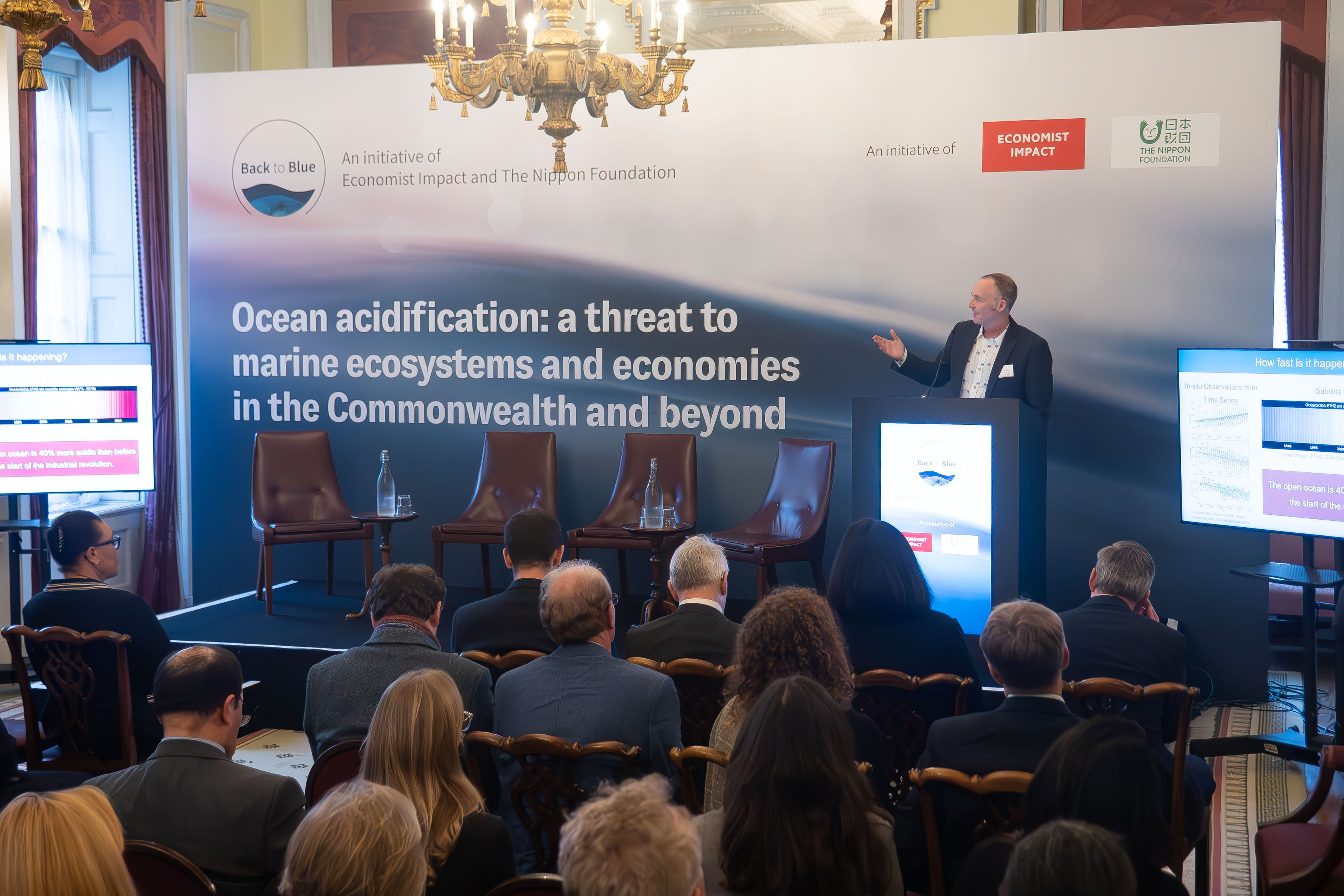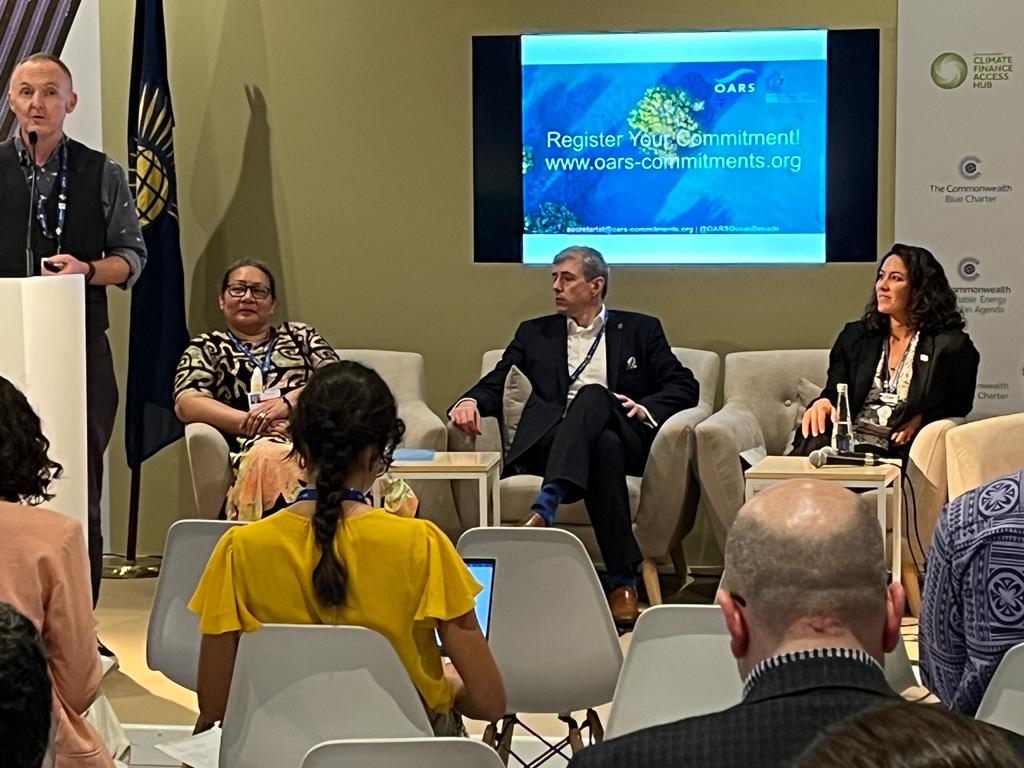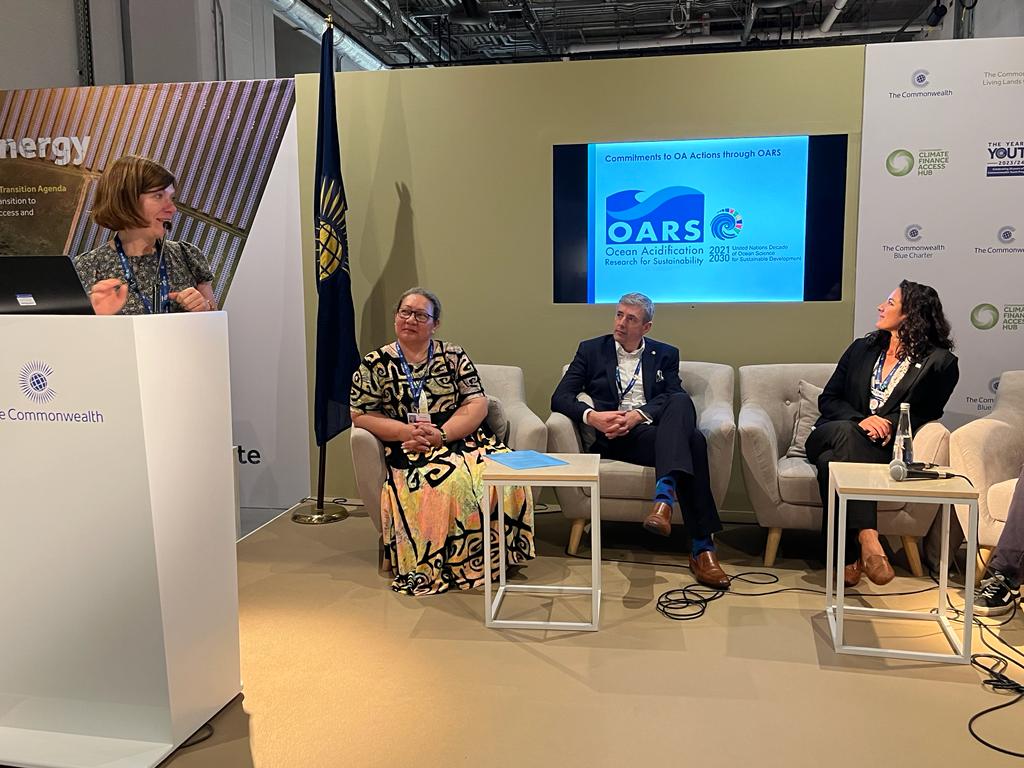

People


Downloads
| Attachment | Size |
|---|---|
| OARS_doc (1).pdf | 351.09 KB |
| OARS_slidedeck_2024) (1).pdf | 3.71 MB |
| OARS_proposal_2020 (1).pdf | 319.34 KB |
| OARS Commitments slides_Jan24 (1).pdf | 1.03 MB |
Vision
As proposed by the Global Ocean Acidification Observing Network (GOA-ON), the UN Ocean Decade endorsed Ocean Acidification Research for Sustainability (OARS) programme provides society with the observational and scientific evidence needed to sustainably identify, monitor, mitigate, and adapt to ocean acidification, from local to global scales. Our vision is to mobilise a connected, multi-sectoral community of citizens, experts and professionals to deliver the knowledge and actions required to mitigate, manage and adapt to the impacts of ocean acidification.
Mission
Aligned with Sustainable Development Goal Target 14.3, OARS is dedicated to minimising and addressing the impacts of Ocean Acidification (OA) through enhanced cooperation at all levels. We are creating a network of scientists and other ocean professionals to provide systematic evidence of how ocean acidification is changing the chemistry of our oceans, how these changes impact the sustainability of marine ecosystems, and use this knowledge to underpin better management of marine resources. Through our efforts, we aim to foster collaboration and capacity-building and bridge the gap between cutting-edge research and practical applications.
Ambition
OARS aims to provide motivation, guidance and leadership to the ocean community (public, scientists, educators, communicators and decision-makers) to ensure that effective actions are taken to address the impacts of ocean acidification on humans and nature. We will do this by supporting the ocean community to deliver 7 OARS Outcomes:
1. Quality data
2. Science to action
3. Observing strategies
4. Understanding biological impacts
5. Future predictions
6. Public awareness
7. Policy engagement
To deliver this, OARS has created seven working groups, one for each Outcome. Each of the working groups is led by two co-champions who are internationally recognised experts and leaders in a field relevant to that outcome. These working groups have each published a white paper which sets out a vision for the actions needed to deliver the outcome. These white papers have been brought together in an IOC-UNESCO Technical Report (Ocean Acidification Research for Sustainability - A Community Vision for the Ocean Decade1), providing a roadmap for how the global community can successfully deliver the seven OARS Outcomes. Specifically, it highlights the key outputs and products required, while also describing research/outreach activities and identifying the key inputs. Finally, the report identifies those partners required to successfully implement each OARS Outcome. Guided by these seven white papers, our ambition is to facilitate the development of activities, collaborations and knowledge exchange, which will ultimately deliver the OARS Mission.



Steering members




Follow us